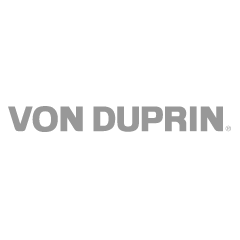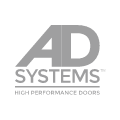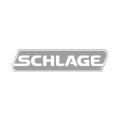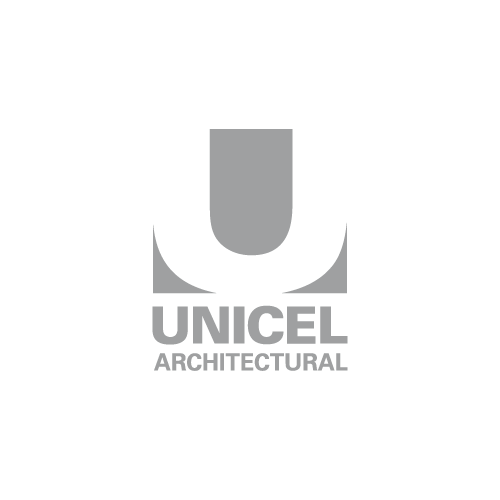Lorem ipsum dolor sit amet.
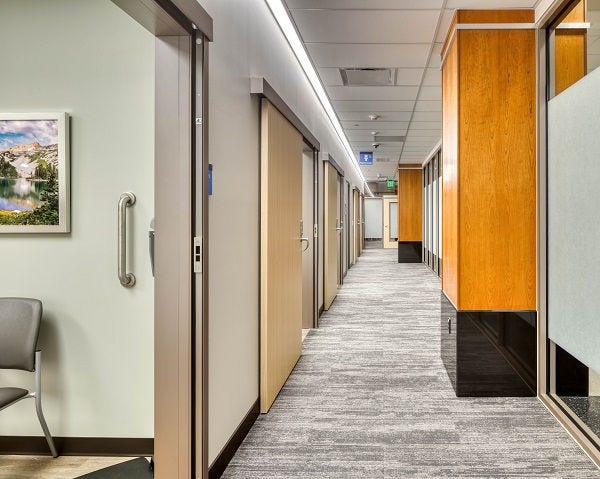
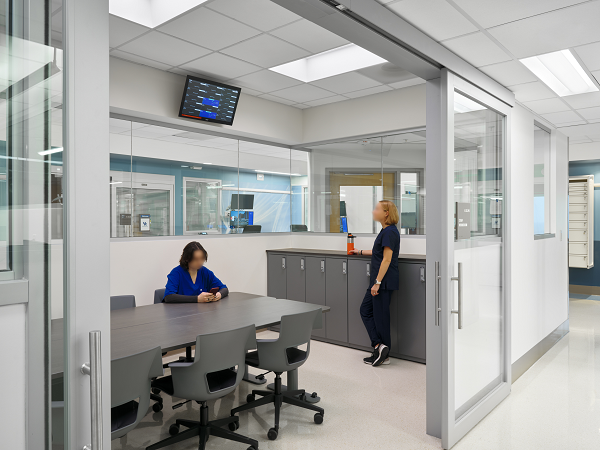
How do sliding doors contribute to acoustical privacy?
Acoustic performance is crucial in healthcare facilities, educational settings and office environments, such as financial institutions and human resources offices. Acoustically isolated rooms can support occupant productivity as well as safeguard private information.
Whereas walls, ceilings and floors can be insulated to reduce noise transfer, door openings often represent a reduction in acoustic performance. This was especially true of past sliding door systems. To address gaps in acoustic performance, AD Systems developed perimeter and drop-down seals. These advances helped AD Systems’ sliding doors achieve Noise Isolation Class (NIC) ratings up 39. An NIC 39 rating indicates a commercial sliding door can reduce sound on either end of the threshold by 39 decibels, turning a normal volume conversation on one side into an unintelligible whisper on the other.
AD Systems has also tested our "office front" assemblies, incorporating fixed sidelites or transoms, to similar levels of performance. These systems are ideal for settings where the more open look and feel of a glass partition is desired. AD Systems' doors allow architects and designers to benefit from the space-saving design of sliders even in areas where acoustical privacy is a concern.
Please contact us for more information about acoustic testing and performance data..
How can soundproof sliding doors improve privacy in health care settings?
In health care interior design, door openings can contribute to sound transfer—whether they are left open or have gaps along their perimeters. To diminish sound transfer, designers are encouraged to specify doors with premium acoustic ratings. Acoustical doors limit how much sound enters and leaves a room, which can support patient privacy as well as be a contributing factor to HIPAA compliance.
While there is no truly soundproof sliding door, options like ExamSlide™ from AD Systems, can offer premium sound attenuation thanks to perimeter and drop seals. With Noise Isolation Class (NIC) ratings up to 39, they can muffle a conversation on one side of the door to a whisper on the other. As such, they contribute to patient and provider privacy while also maximizing useable square footage.
What additional benefits are there to acoustic isolation in health care interior design?
Sound attenuation contributes more than HIPAA compliance and patient privacy. It can also support provider well-being and performance as well as improved patient outcomes. Architects specializing in intensive care units (ICU) have noted that providers often ask for doors that support acoustic isolation without compromising visual connection. Reducing noise transfer helps providers stay more alert and offer better care.
Further, multiple studies have indicated noise pollution is detrimental to the health of patients. Designing with sliding doors with premium acoustic performance can help reduce noise pollution to improve patient experiences and outcomes by reducing alarm fatigue among providers.

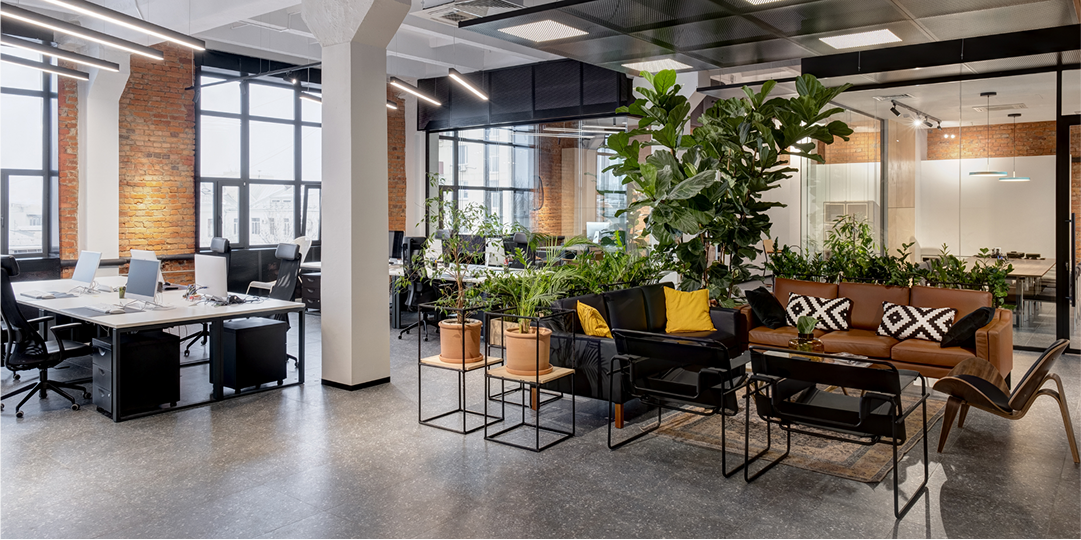

Want AD Systems in your inbox?
Sign up to receive product updates, news and information from Ives sent directly to your inbox.
Let us help.
Contact us today to talk about your project needs.


